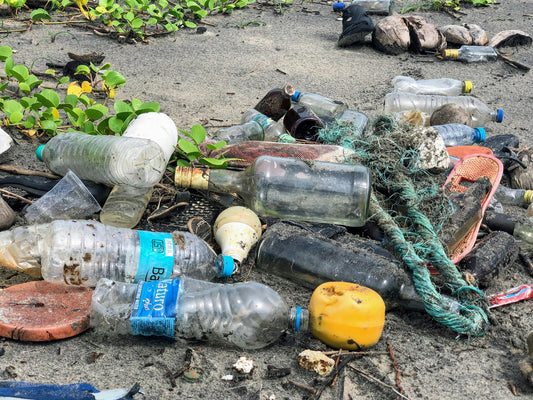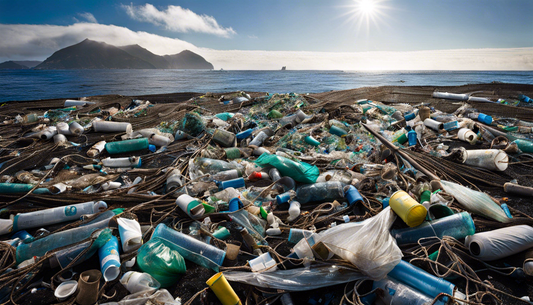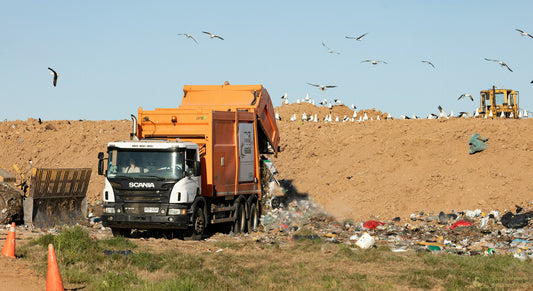
The Role of Education in Preventing Environmental Pollution (2024)
Share
Suppose you wake up one morning to find the sky is grey all the time, rivers are devoid of life, and the air is poison to your lungs.
This is not a picture of the world in some distant century, but a probable future that awaits us if mankind does not start fighting against pollution today.
A combination of strategies is needed to tackle this global problem, and education is a critical component of these strategies.
Education plays a vital role in raising awareness of the causes and effects of pollution, implementing sustainable measures, and changing the system.
This article offers insights into the importance of education in averting environmental pollution across different sectors.
Importance of Promoting Education in Combatting Environmental Pollution

The Link Between Education and Fighting Pollution
Environmental education is one of the most effective measures to fight pollution on a large scale. Especially in the first 9 years of school, children are susceptible to environmental awareness and pro-environmental behavior.
Several studies provide a promising link between greater general levels of education, environmental awareness and pro-environmental behavior.
While there are many reasons for the effectiveness of education in fighting pollution, it is largely related to raising awareness, improving knowledge, and promoting sustainable practices.
Raising Awareness and Understanding
Education plays a significant role in informing people about the existence of environmental problems and the nature of these issues.
From education, individuals are informed of the consequences of pollution, climate change, and other issues affecting the environment.
This awareness is the first step towards creating consciousness and the need to address the issue.
Empowering Individuals with Knowledge
Knowledge is power. Education about the environment empowers individuals to become more knowledgeable about the problems around them and to take action.
This ranges from the personal level, where one decides to recycle or prevent water wastage, to influencing the government and organizations to adopt ecologically friendly policies and practices.
Promoting Sustainable Practices
Education fosters sustainability because people get educated on the need to conserve resources and the impacts of sustainable living.
This includes comprehending how energy can be saved, preventing wastage, and encouraging the use of environmentally friendly products and services.
Schools and universities have a central role in this by incorporating sustainability into their academic and institutional practices.
Educational Initiatives and Programs

School Programs and Curricula
Numerous schools, colleges, and universities have incorporated environmental education into their programs.
Initiatives such as the GUPES (UN Environment Global Universities Partnership on Environment and Sustainability) are designed to help students gain the necessary knowledge and skills to tackle various environmental problems.
Such programs entail operational facets, such as recycling activities, energy-saver campaigns, and environmental clubs, which involve experiential learning and public participation.
Community Engagement
Education programs that are implemented at the community level are critical in raising awareness and changing behaviors toward sustainability.
Measures like local awareness campaigns and workshops on water conservation, waste management, and sustainable agriculture can also involve the people and equip them with knowledge on how to minimize pollution.
Most of these programs require partnerships with local governments, NGOs, and other environmental bodies to enhance their coverage and effectiveness.
Role of Technology
Digital technologies provide new approaches to environmental education. The use of online platforms, mobile applications, and social media outreach can effectively inform a broad population and reach different audiences.
How do Various Countries Implement Environmental Education?

Due to cultural, economic, and ecological differences, environmental education may differ in terms of structure, implementation, and curriculum from one country to another.
Finland
Finland is well-known for its strong educational provision, and the country implements the principles of environmental education.
Finnish schools also incorporate school nature experiences, sustainability projects, and learning about ecology from the earliest stages of education and help students form a strong bond with nature and the responsibility for it.
Japan
Environmental education in Japan is directly associated with disaster preparedness as the country experiences various natural disasters.
Japanese schools promote climate change awareness, energy saving, and other environmental issues in their curriculum through practical projects like gardening and recycling.
Costa Rica
What makes Costa Rica famous is its commitment to environmental conservation and education.
The country's education programs are concerned with the preservation of biodiversity, wildlife, and tourism.
Projects such as the Blue Flag Ecological Program involve schools and other stakeholders in environmental conservation and management for sustainable development.
Global Success Stories Related To Environmental Education

Germany
One example of an environmental program run in Germany is the “Green Schools.” The schools involved in this program also conduct programs on energy conservation, waste minimization, and eco-friendly transport.
This initiative has resulted in a reduction in schools' carbon footprints overall and motivated many students to pursue careers in environmental-related disciplines.
Kenya
Education programs concerning the environment have significantly benefited the people of Kenya.
The Green Belt Movement, started by Nobel Prize winner Wangari Maathai, also embraces schools in tree-planting exercises and environmental conservation.
It has also assisted in afforestation and the fight against desertification and created awareness of the right use of natural resources.
Education and Pollution Prevention Go Hand in Hand
Education plays an important role in the reduction of environmental pollution.
Thus, educational initiatives are crucial to raise awareness, promote sustainable practices, and call for change on a global level, which will lead to a cleaner, more sustainable planet.
Be it school programs, community workshops, university research, or personal actions, all are building blocks for protecting the environment from pollution and preserving it for future generations.
What are your takeaways from this article? Feel free to leave a comment below.
We hope you enjoyed this article. If you want to read more like this, make sure to check out our Blog and follow us on Instagram. If you are interested in truly sustainable products, check out our Shop.







